The Archealogical site of Takht-e-Soleyman also known as the Solomon’s Throne is located in the volcanic mountain region in the North-West part of Iran.
The site is one grand marvel of the remains from the 6th century from the time of Sassanian Dynasty, It was built as a Temple dedicated to Anahita, the Goddess of water. This site has a strong spiritual significance related to all the 4 elements of nature, which is Fire, Water, Earth and Air which are symbolic to the Zoroastrian Religion. During the period of Sassanian Dynasty Zoroastrian religion flourished to its maximum spreading out in the entire region of Iran. In today’s date across the globe there are approximately only 1.25 Lacs people of this religion that exist and you will find them majorly in India.
This is the entrance to the site. It has a fencing of mud brick wall.
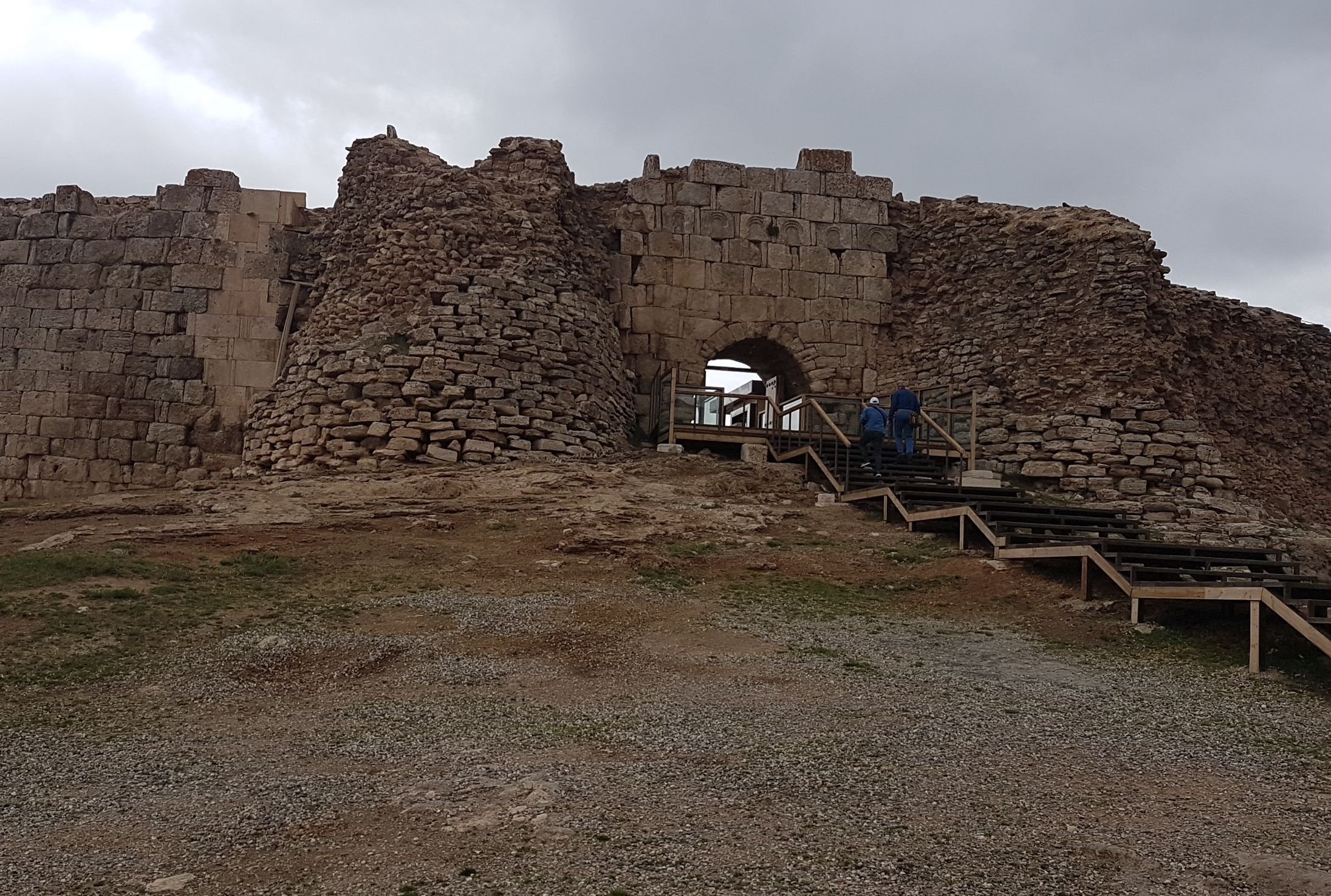
As we enter the site, the first thing that we get to see is a Lake, this lake contains high amount of Lime and Sulphur. It is believed that this site was chosen because of its natural peculiarity; an outcrop of limestone built by the sediments of the overflowing water of a thermal spring-lake. The water of this lake in those times reached out to all the surrounding regions.
It is also believed that people in those times used to hide their valuables in this lake as they believed that the Water Goddess Anahita would protect their treasures, so there is a hope of finding treasures at the bed of the lake.
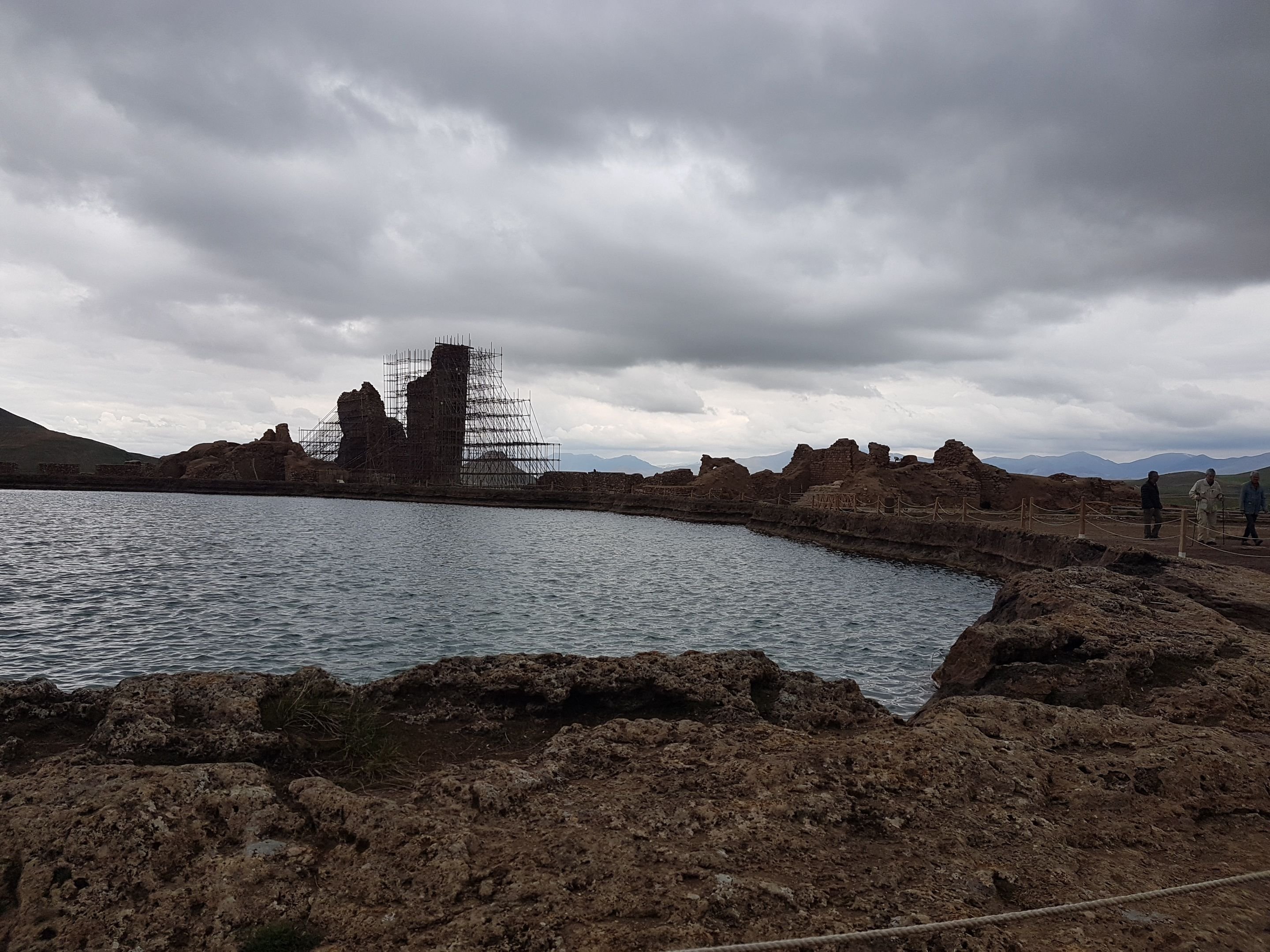
Then as we move ahead, exactly behind the lake is this area which holds the Throne.
You will see a wall behind the Throne, behind this wall there is a place which holds the sacred fire (not anymore). Zoroastrians worship God through fire element and there are different grades of fire that hold significance for them. This place held the fire of the highest grade and was considered to be their first consecrated worship place.
The Significance of the Throne being in the Centre of the 2 elements Fire and Water was that during the Coronation ceremony the kings would first worship the water, then worship the fire and gradually would get on the Throne. Or even during their normal visits they would first bow down to the 2 elements and then get on the Throne.
This Throne is different unlike the normal chair Thrones that we see. This one is made of bricks that can last permanently. I am sure it must have been adorned with jewels in that time.
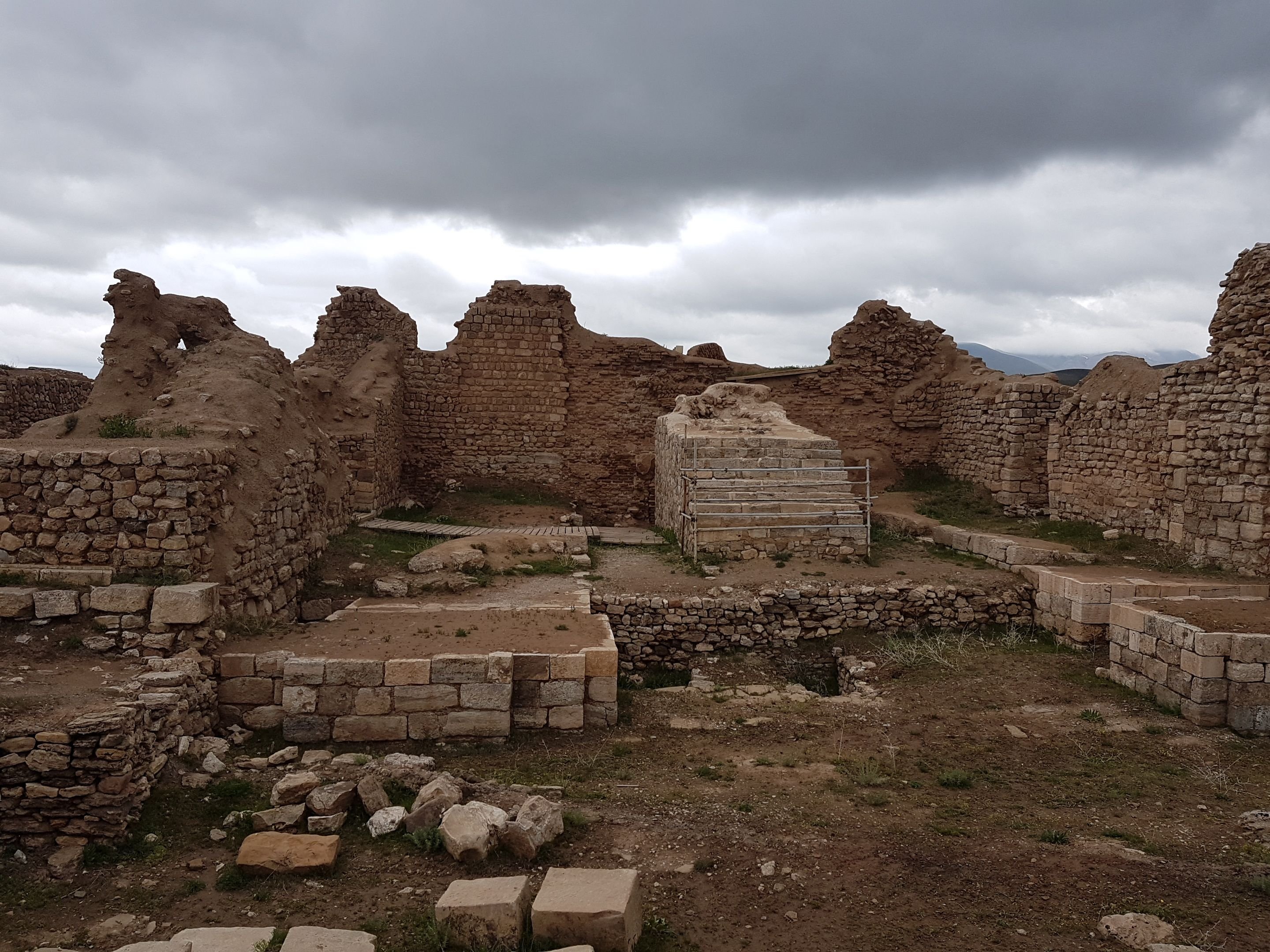
The place where the fire was consecrated for worship
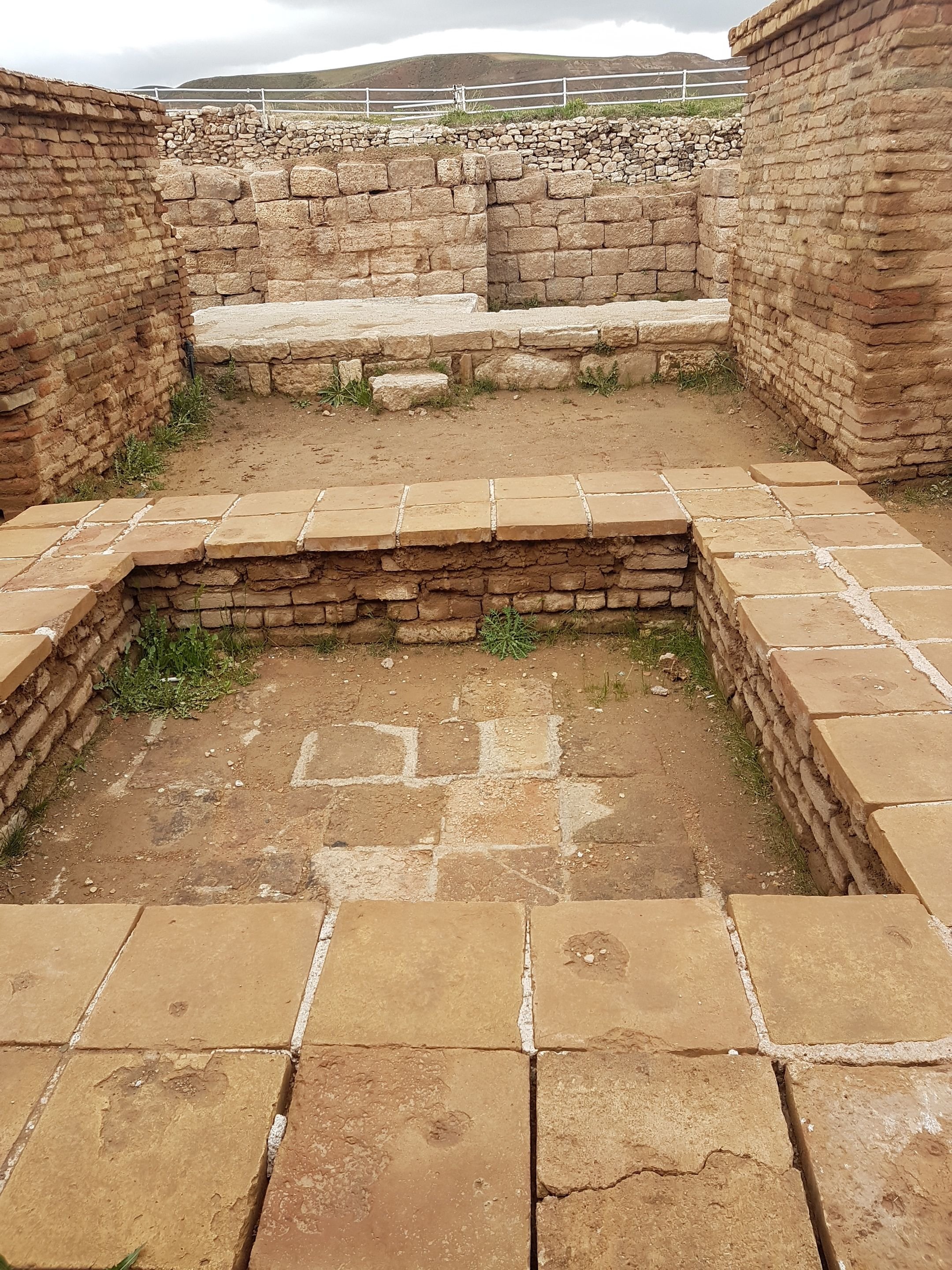
By the end of 7th Century Mongols invaded the region and the Sassanian Dynasty came to an end, during this time Takht-e-Soleyman was also destroyed, but in the 13th or 14th Century some of it’s part were again revived by one of the Mongol rulers and a lot of addition was done to the place but it did not last for very long until it was again rediscovered in the 19th century.
During the Mongol period a Mosque was built up, but that too was destroyed by the subsequent rulers. Now only the walls of the Mosque remains as we see in the picture. This mosque seems to be very different then the ones we see in today's time, may be they have not been able to excavate it completly. But is is also believed that each ruler got things done from their perspective, hence this can be a different one then the usual.
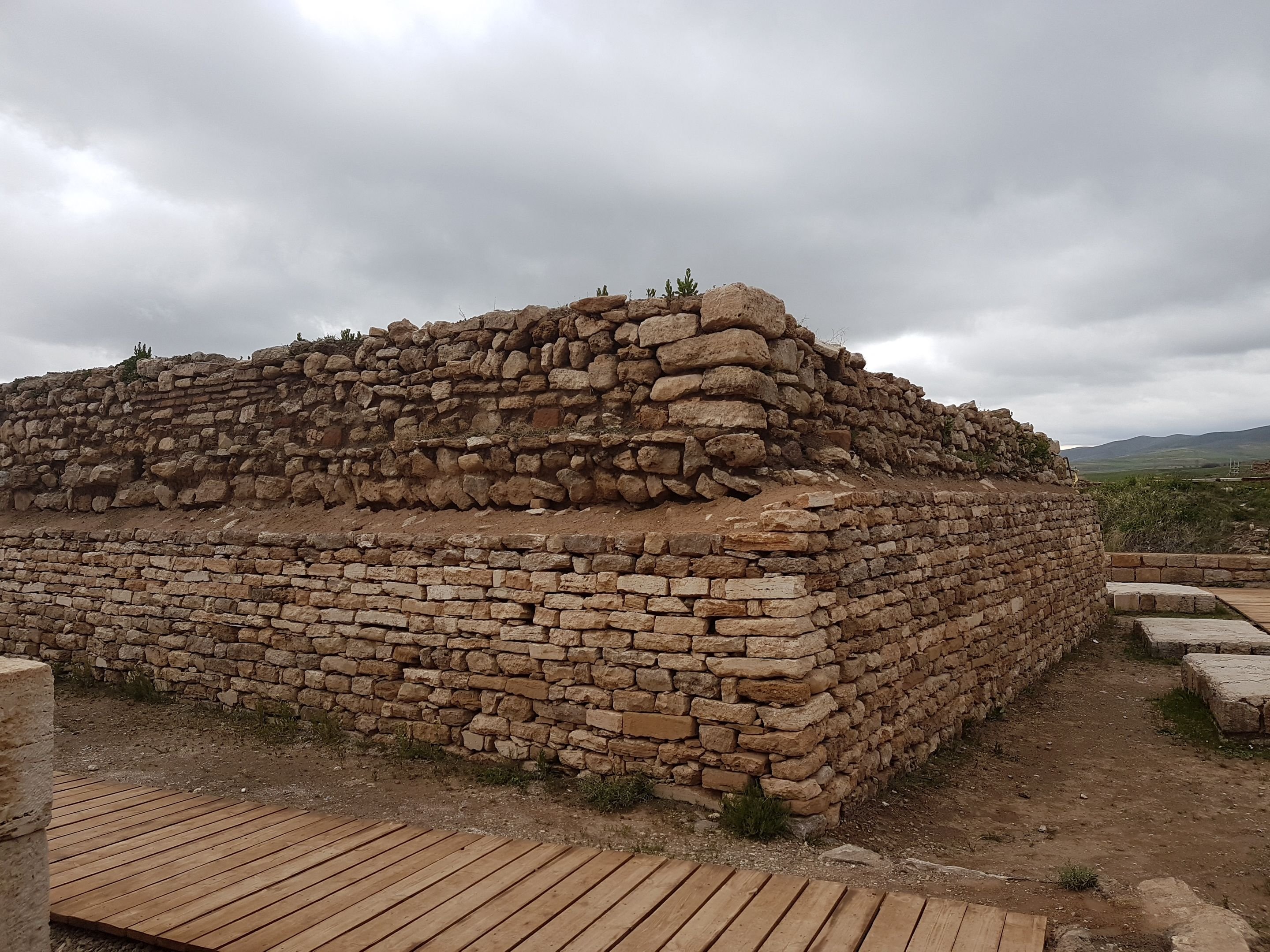
The Hammam (Bath House) which also came up during the Mongol period.
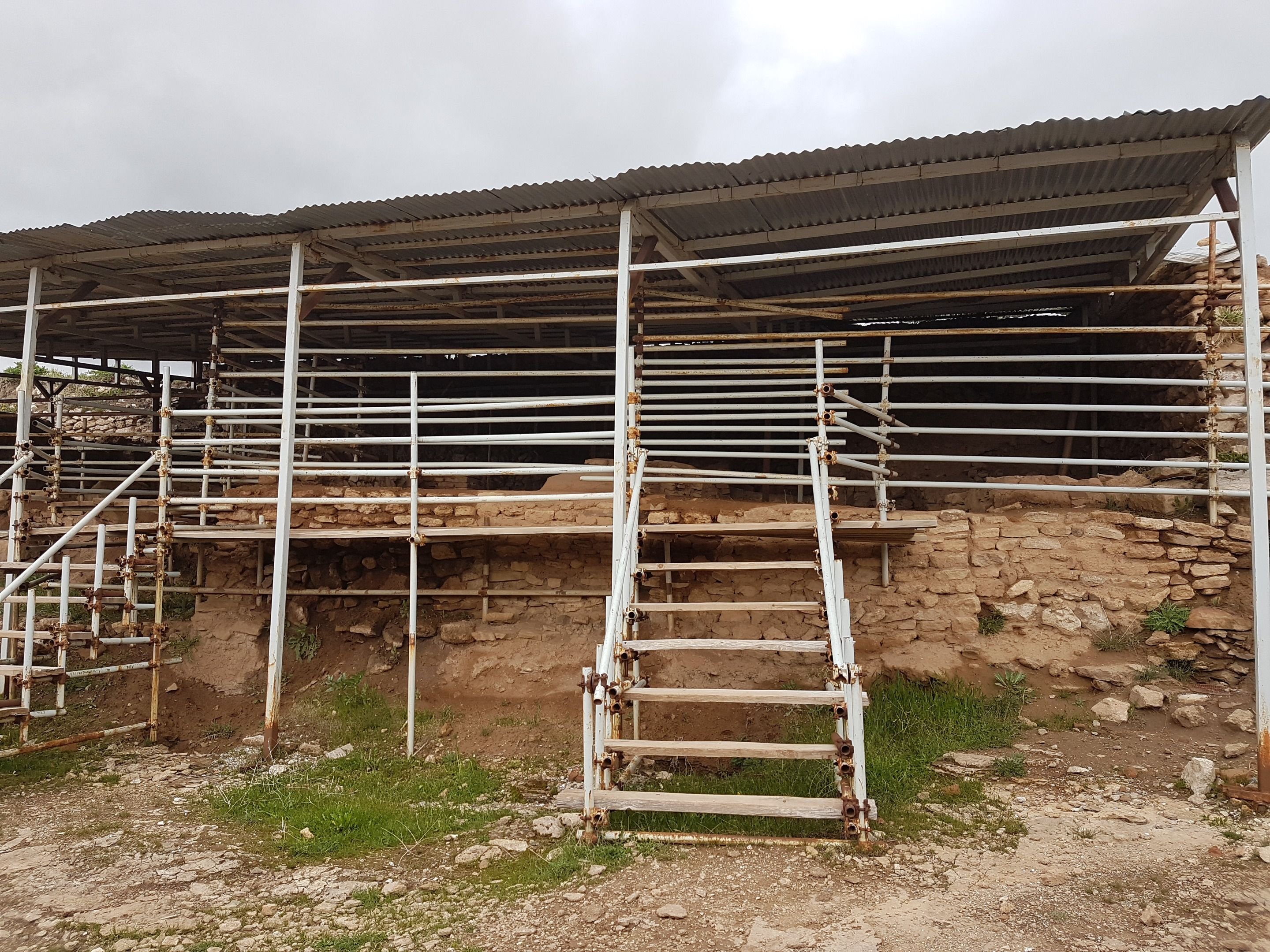
This narrow passage at the first look I thought it was a hiding place because of its appearance but later as the guide explained we understood they had corridors which led to the rooms for royal use. I assume they must be keeping up this place lit up with fire lamps all the time as there is no ventilation.
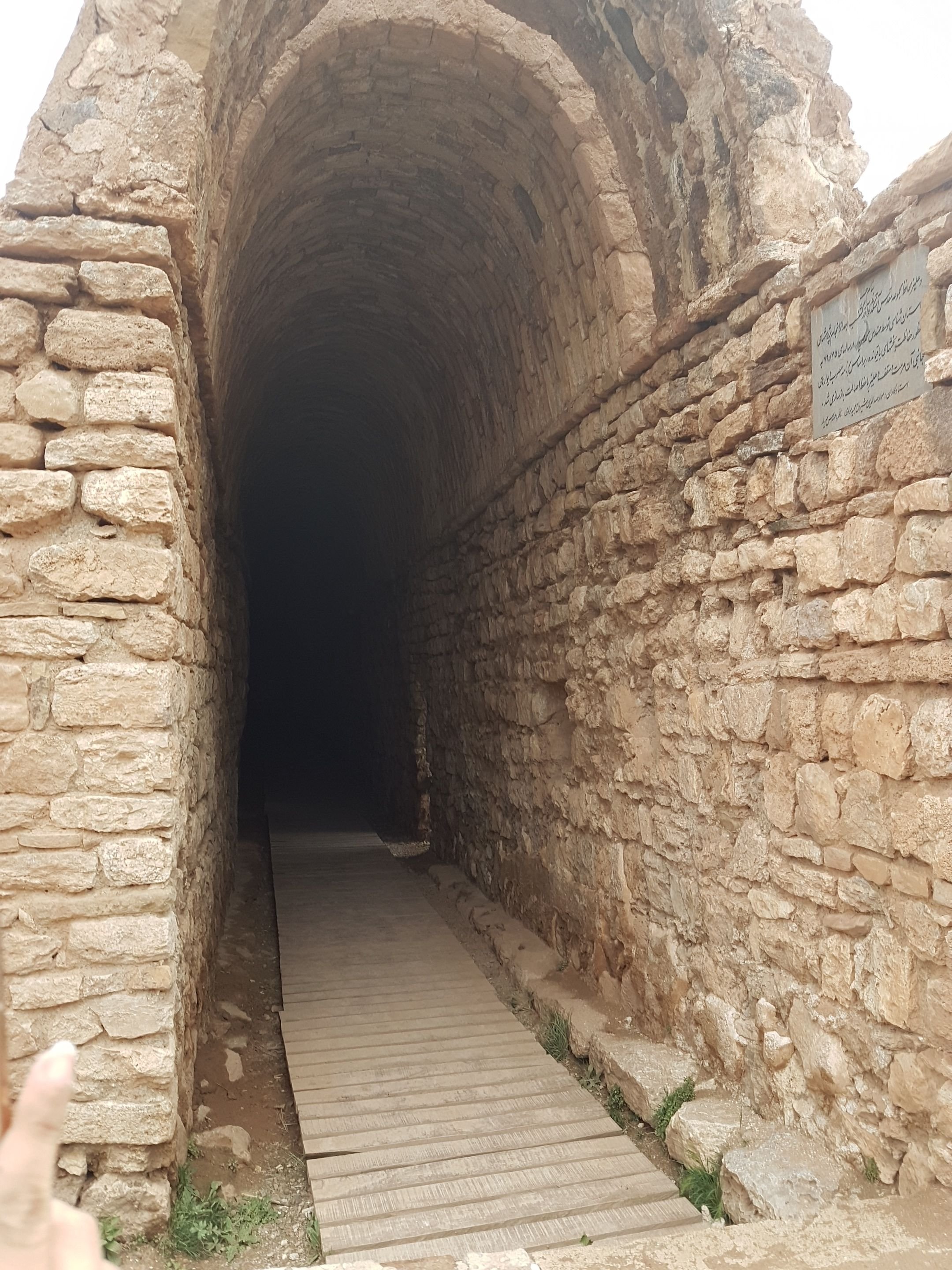
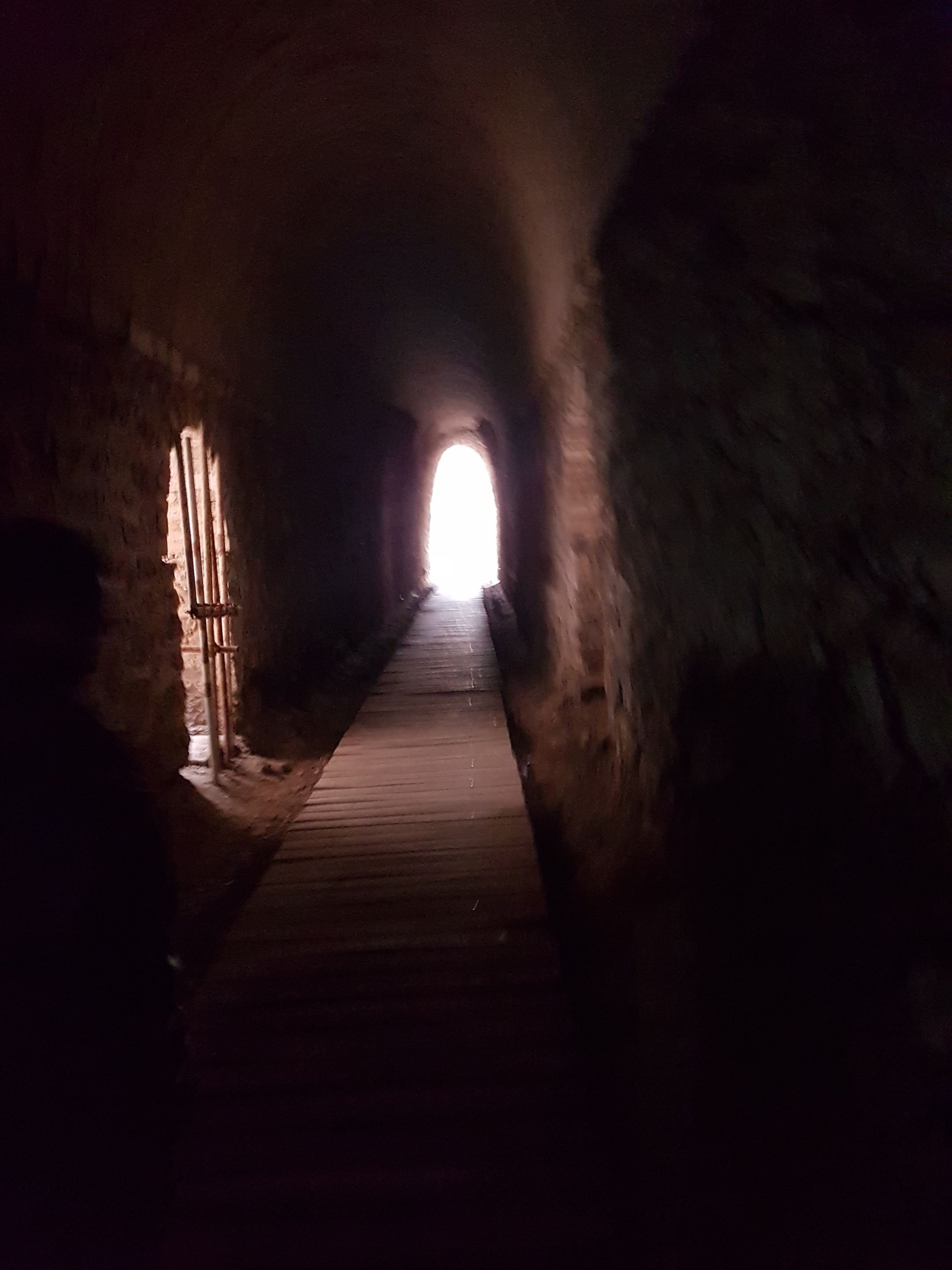
As we come out of the passage we land in this place where we see these 4 columns. It is assumed that this must have been an Assembly Hall for the meetings.
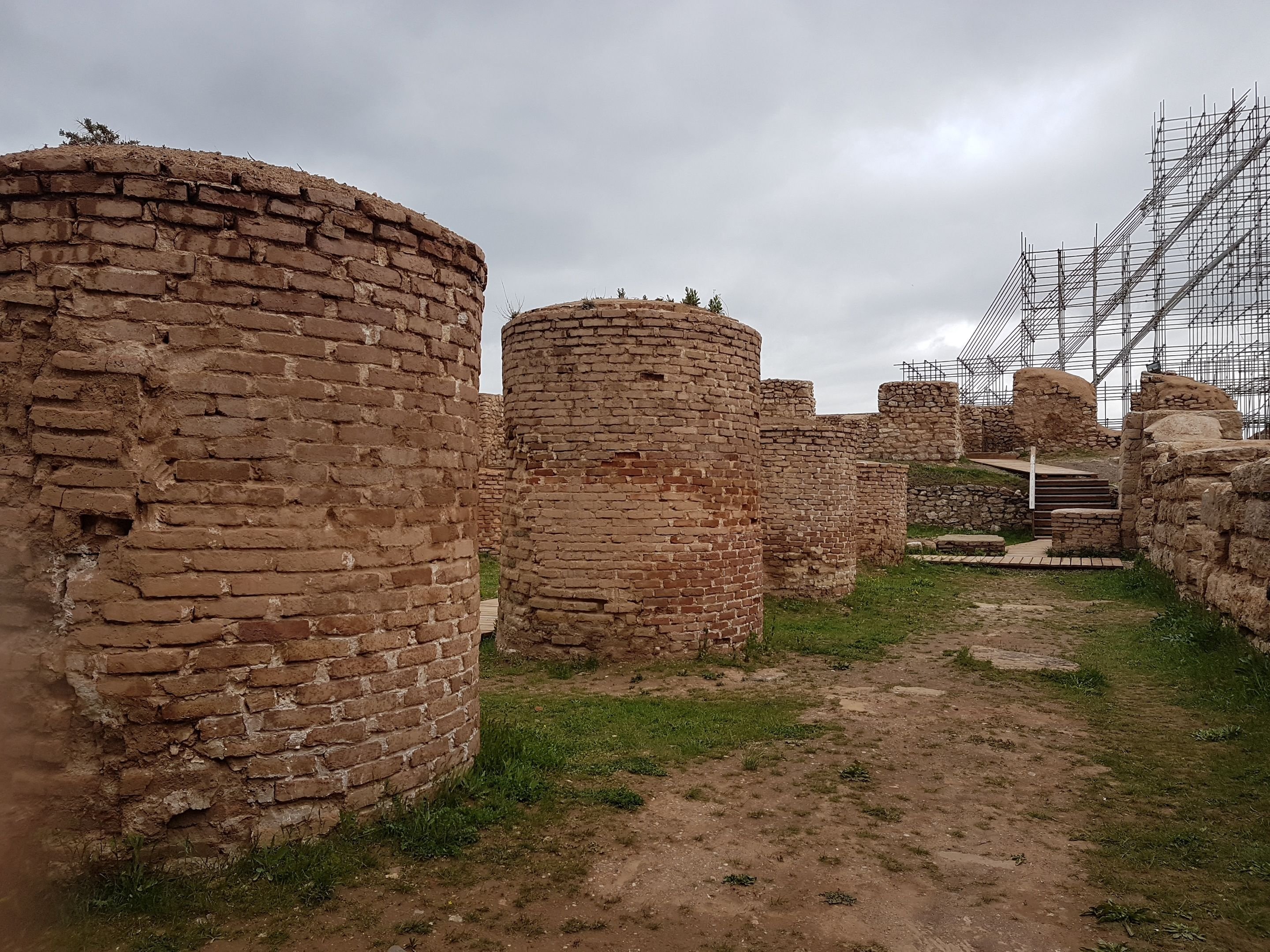
A small stone pool that was discovered in the site. This seems to be like a baby pool.
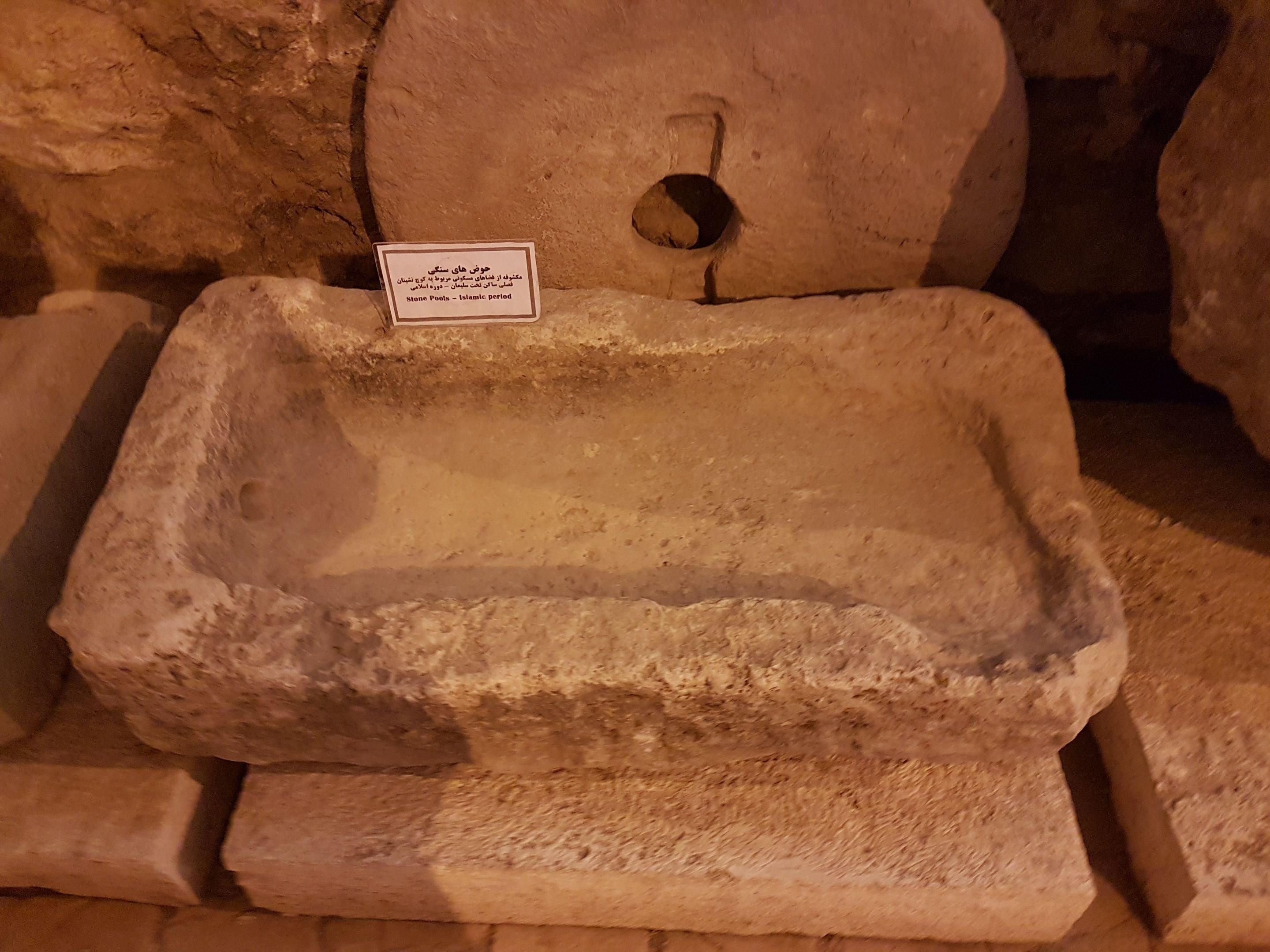
This is the ariel view of the site which was taken before the excavation in 1937.
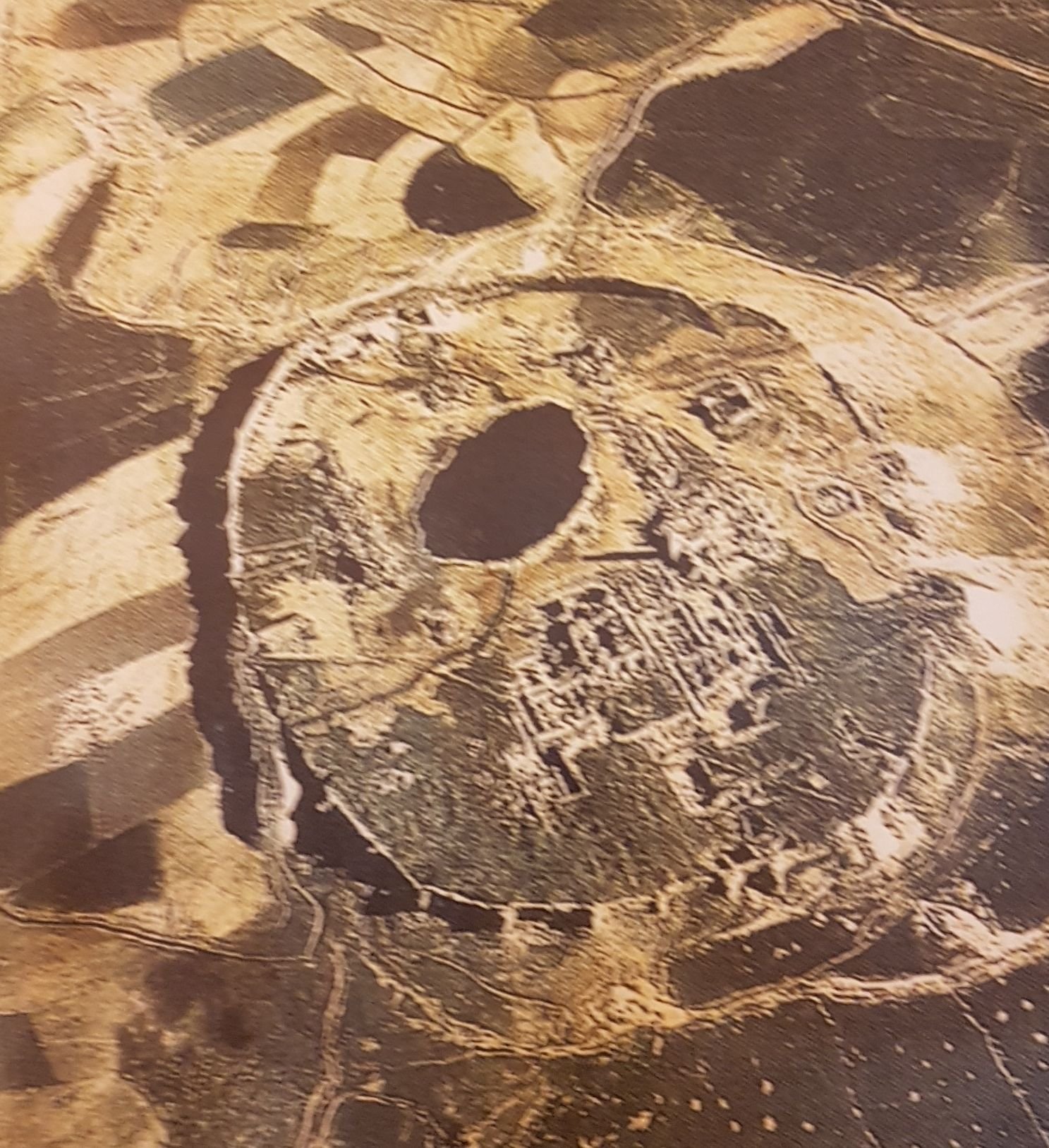
Some of the Wall art work that were discovered in the excavation. If you watch it closely you will see such intricate designs. Its a marvel to see how much attention they paid to the beautification in those times also.
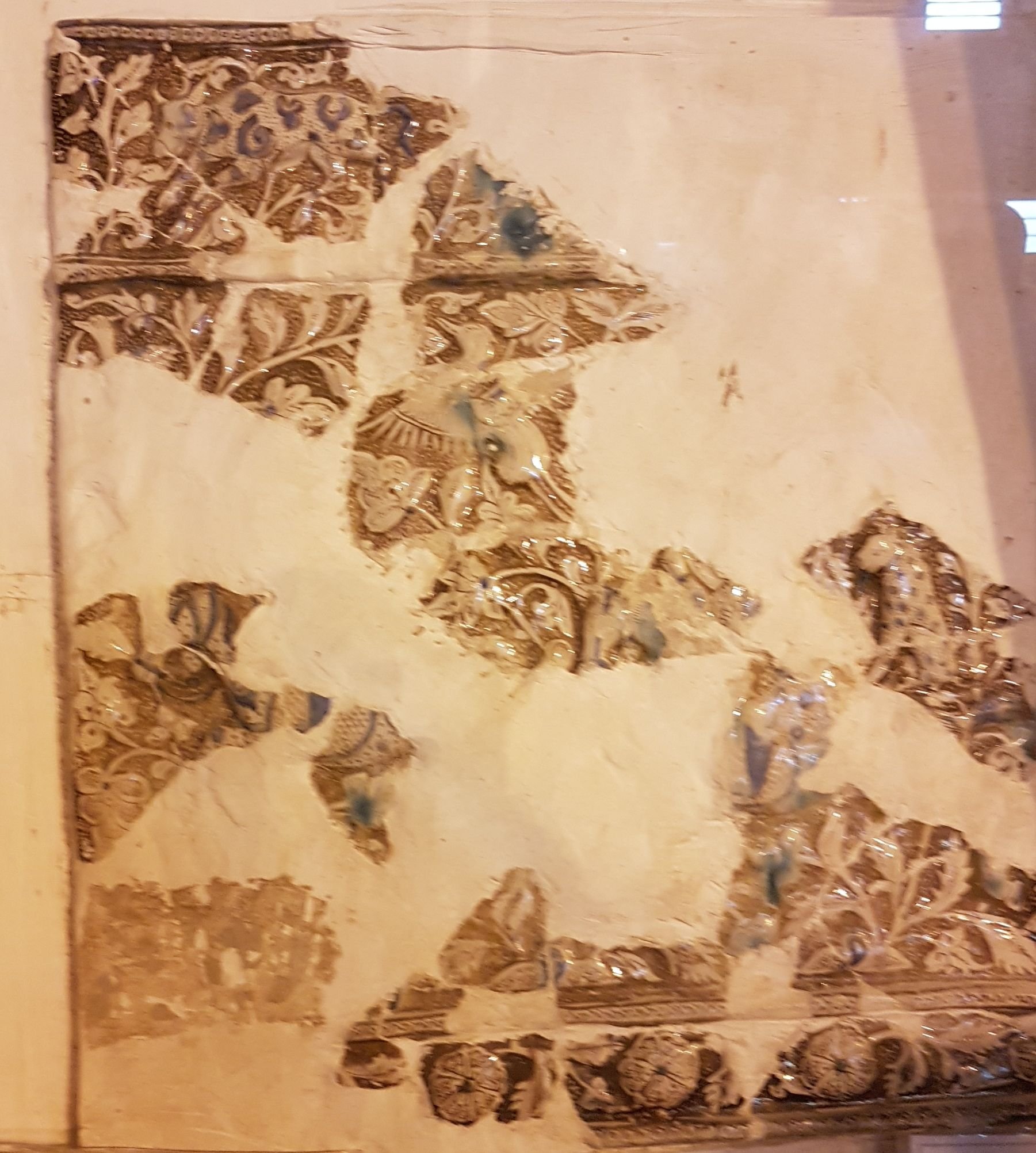
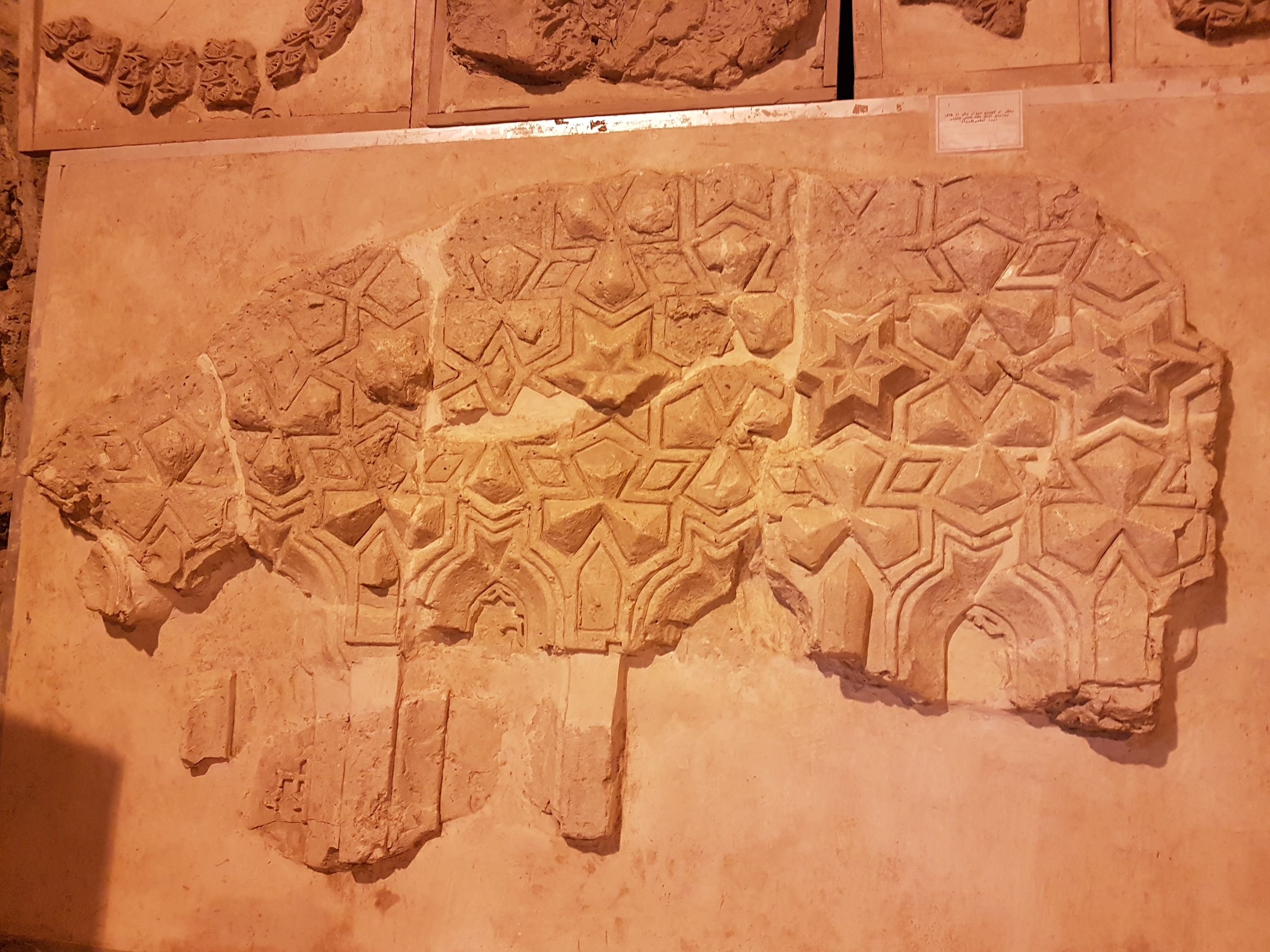
It was a very long drive for us reaching to this place but I felt it was worth it. Also the temperature was low in this region but all of this was taken over by the feeling of getting to know the ancient history. I often wonder nothing has changed from then till now. There was a power fight then and there is a power fight now. Wars have always been a part of us and the greed of power is never ending.
Unesco declared Takht-e-Soleyman site as a Monumental World Heritage site in 2003.
There is restoration work going on in a part of this site, which I have not included.
Hope you all enjoyed this historical site.
With Love and Angels Blessings 💖💖👼🏻👼🏻🧚♀
My other blogs of Interest
Midnight walk by the Seaside
The Power of Morning Rituals
Signs of Indigo Children
Make The World A Better Place
@ecoTrain

